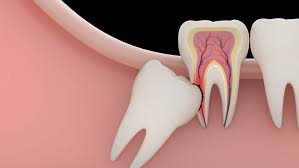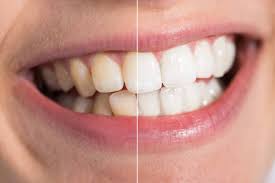From Extraction to Relief: How to Handle Wisdom Tooth Pain

No one enjoys dealing with pain, especially when it strikes in the middle of a busy day. Wisdom tooth pain, in particular, can be a relentless and excruciating experience. Whether you’re in the throes of a dental emergency or simply seeking to understand what might be causing your discomfort, this guide is here to help.
We’ll take you through the entire process, from the moment you first notice the ache to finding effective relief methods. This blog post will give valuable insights for managing wisdom tooth pain.
Read on to learn more.
Home Remedies for Immediate Relief
While waiting for your dental appointment or between treatments, there are home remedies you can try to ease the pain from wisdom teeth.
Saltwater Rinse
A simple saltwater rinse can provide temporary relief from wisdom tooth pain. Mix a teaspoon of salt in a glass of warm water and swish it around your mouth for 30 seconds before spitting it out. Repeat this process a few times a day to reduce inflammation and kill bacteria.
Cold Compress
Applying a cold compress to the affected area can numb the pain and reduce swelling. Wrap a few ice cubes in a cloth and hold it against your cheek for 15-20 minutes. Repeat as needed throughout the day.
Over-the-Counter Pain Relievers
Non-prescription pain relievers can help manage wisdom tooth pain. Be sure to follow the dosage on the packaging.
Dietary Adjustments for Long-Term Relief
Also to immediate relief methods, making dietary adjustments can help ease wisdom tooth pain in the long run. Here are a few tips to consider:
Soft Foods to Eat
Eating soft foods can cause irritation and discomfort while your wisdom teeth are causing pain. Opt for items like yogurt, mashed potatoes, smoothies, and scrambled eggs.
Foods to Avoid
Avoid hard, crunchy, or sticky foods that can worsen wisdom tooth pain. Items like nuts, chips, and chewy candies can get stuck in the tooth extraction site or cause further irritation. Stick to a gentle diet until your pain subsides.
Staying Hydrated
Drinking plenty of water is essential for maintaining good oral health and aiding in the healing process. Avoid sugary or acidic beverages, as they can irritate the gums and worsen the pain.
Professional Treatments and Interventions
It’s important to seek professional treatment for long-term solutions. Your dentist may recommend one or more of the following interventions:
Antibiotics for Infection
If your wisdom tooth pain is caused by an infection, your dentist may prescribe antibiotics to clear it up. It’s important to complete the entire course of medication, even if you start feeling better before finishing it.
Dental Cleaning and Maintenance
Regular dental cleanings can help prevent wisdom tooth pain by keeping your mouth healthy. Plaque and tartar buildup can exacerbate discomfort, so maintaining good oral hygiene is crucial.
Specialized Dental Procedures
In some cases, more specialized dental procedures may be necessary to address wisdom tooth pain. Your dentist will recommend the best approach based on your specific situation.
Also, they will show you the types of impacted wisdom teeth. This is crucial for early intervention and preventing complications.
Exploring How to Handle Wisdom Tooth Pain
Wisdom tooth pain can be a daunting experience, but with the right knowledge and support, you can manage and alleviate your discomfort. By understanding the causes, exploring home remedies, and seeking professional treatment when necessary, you’ll be well-equipped to handle any challenges that arise. Remember, maintaining good oral hygiene and staying proactive about your dental health is key to preventing future issues.
For more helpful tips, check out the rest of our site today.




